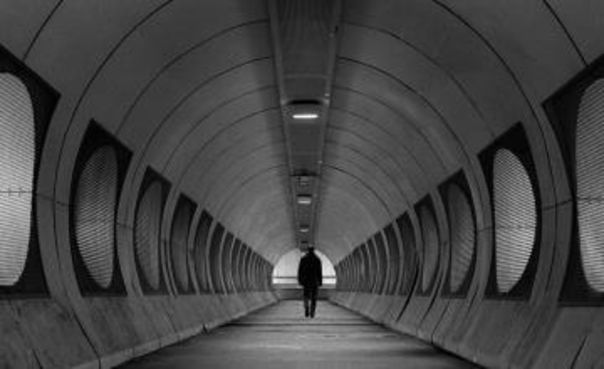Review: GRAIN / BUĞDAY
By Arman Fatić

"How can you stand that which you do not comprehend?" Quran, The Cave / verse 68
Semih Kaplanoğlu, the Turkish director best known for his Yusuf trilogy, had the honor of opening this year's Feature Competition Programme of the 23rd Sarajevo Film Festival with his first project in seven years. GRAIN / BUĞDAY (2017) is a dystopian, sci-fi film engraved with symbolism specific to sufi philosophy. Partly based on 29 Quran verses, from the chapter The Cave, it tells the story of Moses looking for guidance from an unknown Teacher. Casting French lead Jean-Marc Barrr and Bosnian actor Ermin Bravo for his first English-language feature, it is obvious that Kaplanoğlu is expanding his work to wider, European audiences.
Following Erol Erin (Jean-Marc Barr), a Genetics professor, we find out that life on planet Earth is on the edge of extinction. By altering nature, humans tried to genetically produce better living but in the process actually destroyed it. There are no more natural seeds that are able to provide unlimited generations of food, bees and other pollinators have died, so it is just a question of time when GMO will reach its limit and life on Earth will end. The last hope seems to be Cemil Akman (Ermin Bravo), author of theories tying genetics to chaos and metaphysics, who has gone rogue and left to the Wastelands. So professor Erin starts his journey seeking both his colleague Cemil and the secrets of existence.
Refugees, hunger, the environmental problems of today’s world all get their “close-up” when shown through Kaplanoğlu’s dystopian lens. The director tackles problems of environmental destruction using Tarkovsky-alike aesthetics (STALKER). His black-and-white shots filmed on 35mm intensify the consequences of genetic alterations. The director wraps it all up with breathtaking stone-covered mountains and ruins that at the same time reflect the post-apocalyptic and mystical side of the film.
After a 20-minute exploration of the consequences of human nature, Kaplanoğlu makes a hard storytelling switch in the film. We progress from a Western experimental post-apocalypse film to an Eastern soul-exploration film. Following the narrative line from Quran verses 18:54 to 18:83, the director shows us what the reasons were for the apocalypse, and offers us insight into redemption. We move from the chaotic ruins of the civilized world to the peaceful landscapes of the Wastelands.
Sufi inspiration taken from Ibn Arabi, Rumi, and other Eastern philosophers and poets stays at its basics, for the sake of wider audiences. Because of this simplification, there are moments when the film gets a bit repetitive, with simple out of place quotes like: “We are always in a dream, even when we are awake”.
Kaplanoğlu also decided to use a significant amount of Islamic sufi symbolism, like the extinction of bees which represents the coming of Judgment Day, or ritual cleaning with wet earth, the material from which mankind was created. (”We created man from a product of wet earth” Quran, The Believers / verse 12). However, the symbols never reach their full potential, so instead of becoming strong metaphors, they end up becoming dubious dialogue.
GRAIN, this visually-driven exploration of men, succeeds to capture the essence of human nature by showing us the annihilation of body and uprise of soul. At the end of the film, Kaplanoğlu leaves his viewers with the question: does humanity have appointed time, beyond which it will find no escape?

